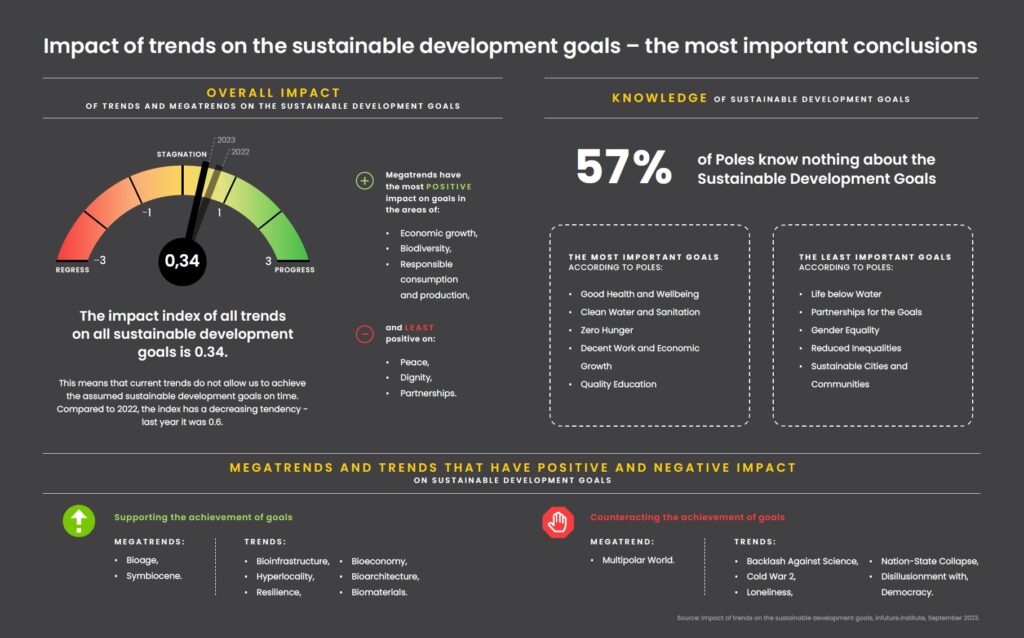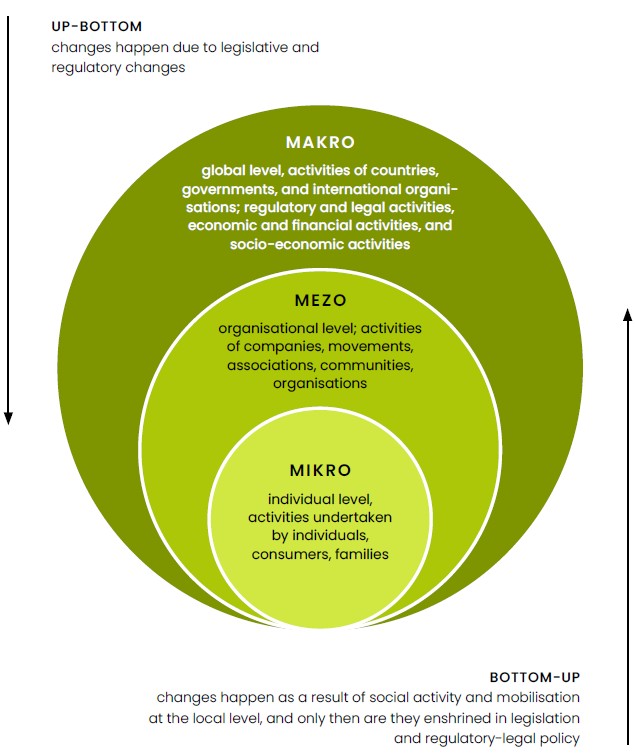The impact of trends on the Sustainable Development Goals (SDG) 2023
The world we live in is a world of overlapping crises, including climate, energy, raw materials, food, geopolitical and economic crises. To counteract these crises, the UN adopted the 2030 Agenda for Sustainable Development in 2015. All member countries unanimously committed to implementing the Sustainable Development Goals (SDG, SDGs) established under Agenda 17. These goals also gave rise to changes in European legislation, according to which, from 2024, companies will have to report to what extent they comply with the assumptions of the 2030 Agenda in the environmental, social and corporate areas, the so-called ESG directive (environmental-social-governance).
Trends’ Influence Indicator (TII) on SDGs
In order to facilitate all market entities – business, administration, scientific units and social organizations – strategic work for sustainable development, as well as the implementation of the ESG directive required in European legislation, for two years infuture.institute has been conducting a study resulting in an indicator of the impact of trends on Sustainable Development Goals (SDGs). It shows which trends should be strengthened and which should be weakened or eliminated in order to work towards a sustainable world. This data in the form of Heat Maps, charts and tables, along with clear tips on how to work with them, is available in the report “The Impact of Trends on the Sustainable Development Goals”.
DOWNLOAD FREE REPORTThe most important findings from the SDG report
The report clearly shows that current global trends make it impossible to achieve the goals adopted by UN countries under the 2030 Agenda. The indicator of the impact of trends on sustainable development goals developed by infuture.institute reached the value of 0.3 this year (on a 7-point scale). For trends to have a positive impact on the implementation of the Sustainable Development Goals, the indicator would have to be at least 1. For the two years since this study has been conducted, such a result has not been achieved. Other conclusions are available in the infographic below:

How to work with trends in the context of ESG assumptions
Despite unsatisfactory progress in achieving the goals, the 2030 Agenda remains a valid and important program for a better world; basically the only strategy we currently have. But having a strategy is only the first step; the second, more important, is its implementation. How can we ensure that the Sustainable Development Goals are not just something written on paper? How to make them actually implemented? The report details three conditions that seem particularly important from a business perspective:
- build awareness of the Sustainable Development Goals among employees, consumers and society;
- support trends that have a positive impact on the implementation of the Sustainable Development Goals and counteract those that negatively impact it;
- lead actions for a sustainable world at the micro (individual) and meso (organizational) levels, and not only at the macro (global) level.
Who is this report for?
- Enterprises and organizations, especially those implementing ESG strategies
- Public administration
- Political parties
- Universities and scientific institutions
- Non-governmental organizations (NGOs)
Methodology for calculating the indicator
The indicator of the impact of trends on the Sustainable Development Goals is calculated on the basis of data from the Delphi panel created by infuture.institute. It consists of thirty experts from areas such as technology, law, medicine, society, etc. The assessment was made by each expert individually, using an online survey. Each expert’s assessment had the same weight. After collecting data from all experts, the results were averaged, thanks to which the impact of trends/megatrends on the implementation of goals/areas was determined at three levels: regression, stagnation, progress. The full composition of the Expert Council participating in the Delphi panel is available at: https://infuture.institute/rada-ekspercka




